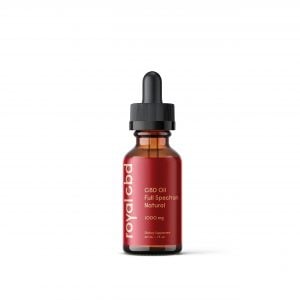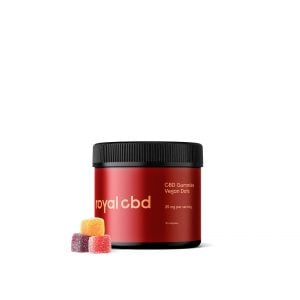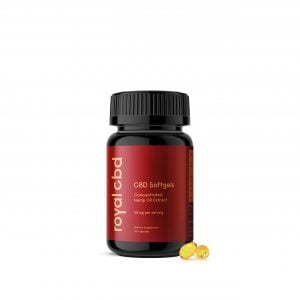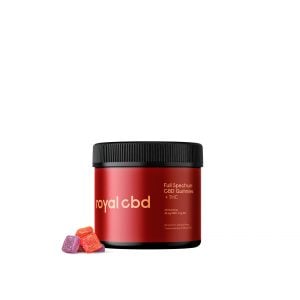CBD is a loosely regulated industry. While CBD alone is safe, it’s difficult to say the same about all CBD oils out there.
The truth is, many products on the market are either mislabeled and contain less CBD than advertised, while others are downright dangerous because of the contamination with toxins like pesticides, heavy metals, or solvent residue.
Worse yet, companies selling such oils often promise “safe and effective” products — setting up traps for inexperienced consumers.
CBD is safe, but in this article, we’ll also help you how to choose a safe product and avoid fly-by-night vendors.
You’ll save money, time, and nerves.
Read on so that you can always make a well-informed decision.
Is CBD Safe?
Yes, CBD is generally considered safe for humans. Since it doesn’t get you high, it’s also legal in most places across the world. Numerous studies and health organizations have examined the safety profile of CBD, coming to a unanimous conclusion — that it’s safe and well-tolerated by humans.
Let us explain.
CBD Safety & the WHO
In 2017, the World Health Organization (WHO) held the 40th meeting of the drug commission, where they evaluated the safety profiles of different substances — including CBD.
The meeting concluded its findings in a massive report presented to the public. The WHO reported CBD is a safe and well-tolerated compound with no potential for abuse and addiction.
Unfortunately, the report isn’t available on the WHO website anymore; it was replaced by a short draft with scant information regarding CBD and recommendations for its scheduling in member countries.
CBD Safety Status According to Scientific Reviews
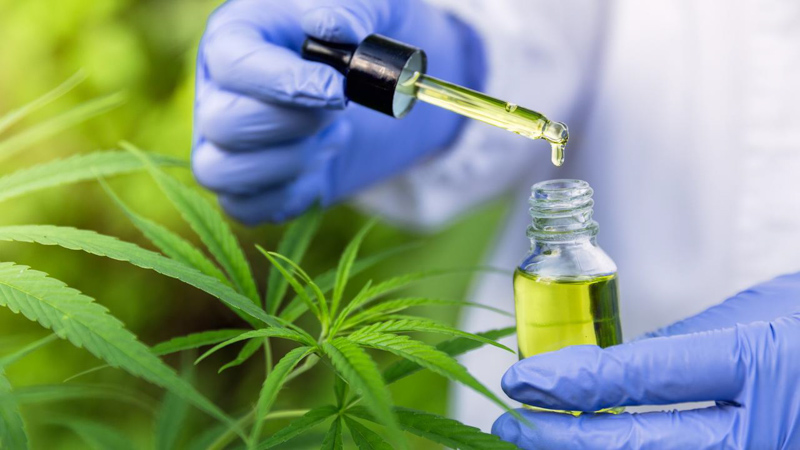
A 2017 update on the safety and side effects of CBD reviewed several studies involving humans and animals. In their conclusion, the authors claim that even doses as high as 1,500 mg administered for six weeks are safe for humans and don’t cause life-threatening side effects.
The review covered mostly pure CBD and only a few whole-plant extracts, but the conclusion aligns with the aforementioned stance of the WHO.
Can You Overdose on CBD?
Know this — it’s impossible to die from taking too much CBD.
Why?
Because CBD doesn’t affect the brain stem regions that control respiratory functions. To date, there have been no recorded deaths from a cannabis overdose — and still counting.
However, that doesn’t mean CBD doesn’t have any side effects.
It does, but they’re mild and almost nonexistent in normal doses.
What Are the Side Effects of CBD?
If you take too much CBD oil, you may experience:
- Appetite fluctuation
- Dry mouth
- Dizziness
- Fatigue
- Diarrhea
CBD also interacts with the majority of pharmaceutical medications (more on that later). You should always consult your doctor if you’re on any prescription to prevent these interactions.
Is CBD Oil Safe?
If CBD is safe, then why would we devote a separate paragraph to discuss the safety of CBD oils?
Because full-spectrum CBD oils (the most common format) contain more ingredients than just CBD. From the very extract to carrier oils and additional ingredients — there are a few things manufacturers can mess up when making CBD oils.
Whether this happens by accident or intentionally, we’re not to judge.
But we can help you distinguish between safe, high-quality CBD oils and substandard products that shouldn’t arrive on store shelves in the first place.
What to Know Before Buying CBD Oil
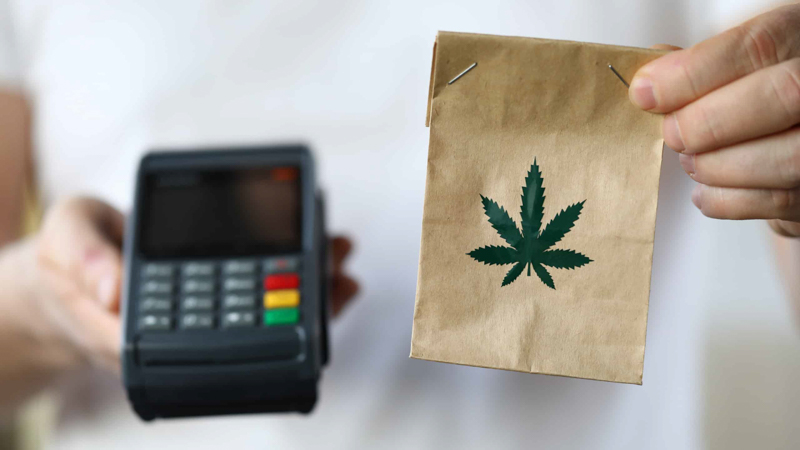
CBD brands are popping up everywhere. If you don’t know where to buy safe CBD oils, there are two rules to follow when comparing hemp products.
First, you need to figure out how much you’re paying per milligram of CBD. Then, look at the percentage of CBD in the product; this will tell you if your supplementation is cost-effective in the long run.
As for the safety check, always ask the following questions:
Is the Hemp Organic?
Hemp is super easy to grow when compared to other oily plants. It doesn’t need pesticides or fungicides to grow healthy, CBD-rich flowers. Its bioaccumulative properties allow it to take what’s the best from the soil.
But when the hemp is grown in contaminated soil, heavy metals and other toxins will pass into the plant material as easily as the aforementioned nutrients.
Hemp from mass farms is also laced with pesticides and chemical fertilizers to ensure maximum protection from pests and enhance the volume of yields. However, pesticides have been shown to be toxic for humans. Consuming pesticides in food and health supplements may damage the immune and nervous system, giving rise to autoimmune conditions and mental disorders.
Always buy CBD oils that come from domestic, pesticide-free, and non-GMO hemp.
How Was the Oil Extracted?
There are several extraction methods available for hemp manufacturers. Most reputable companies use CO2 technology. This method involves running pressurized CO2 through the plant material; the CO2 enters its supercritical state, where it acts as a solvent, effectively stripping the desired compounds from hemp. CO2 extraction doesn’t require high temperatures or aggressive solvents — but still yields pure and consistently potent extracts.
Avoid CBD oils extracted with hydrocarbons. Solvents such as butane, hexane, and propane are difficult to purge and may leave a toxic residue at the bottom of your CBD oil.
Was It Tested for Potency and Purity?
Up-to-date certificates of analysis are an absolute must for CBD companies if they want to be taken seriously. CBD isn’t regulated by the FDA, and as with many unregulated health supplements, the market lacks standardization when it comes to production practices and laboratory testing.
A certificate of analysis contains a report from a content analysis that lists all ingredients of your CBD oil. Third-party laboratories also analyze the purity of the tested sample, checking for pesticides, heavy metals, solvents, and mycotoxins.
Your supplier should display these lab reports on its website or send them with a product — either via email or as a QR code attached to your order.
What’s the Carrier Oil?
As with extraction methods, CBD manufacturers can choose from different carrier oils, including hemp seed oil, olive oil, grapeseed oil, sunflower oil, and MCT oil.
MCT is by far the best choice because it contains the highest amount of saturated fatty acids. Since cannabinoids are fat-soluble, the more saturated fatty acids, the better.
Contrary to popular belief, keeping everything in the hemp family isn’t the best choice for CBD oils. The hemp seed oil contains high levels of polyunsaturated fatty acids that don’t have such a strong affinity to cannabinoids as the MCT fats.
Are There Other Ingredients?
CBD oils may contain additional ingredients, such as supportive herbs, minerals, and vitamins. Some of them also come in flavored variants, so there are different flavorings involved.
If you want to get a safe product, make sure all additional ingredients come from natural sources, and if they’re organic, it’s all the better. You don’t want any unnecessary additives in your formula, such as preservatives, humidity regulators, emulsifiers, or artificial flavorings and colorings.
A Primer on CBD and CBD Oil
You’ve probably heard that abbreviation a lot in recent years, but just to make sure we’re on the same page:
CBD is short for cannabidiol, a naturally occurring compound in cannabis. It’s the second major cannabinoid next to THC, but unlike THC, CBD won’t get you high because it doesn’t have intoxicating properties.
That’s right, no buzz for you.
But!
Since CBD helps optimize the endocannabinoid system (ECS), it plays a role in a range of essential biological processes, such as stress response, pain perception, appetite, sleep cycles, immune function, fertility, body temperature, neurogenesis, etc.
CBD oil is extracted from the flowers of mature hemp plants. Hemp is a variety of cannabis that contains more CBD than THC. In fact, the THC content of hemp doesn’t exceed 0.3% per dry weight.
Not to be confused with hemp seed oil, CBD oil is a health supplement and is used for wellness purposes. Hemp seed oil is devoid of cannabinoids; you can use it as a salad dressing or add it to beauty products, but it doesn’t have the properties of CBD oil.
Hemp-derived CBD oil is non-intoxicating, so it won’t make you feel the same way as THC oil or marijuana-derived CBD oil.
You can find CBD oil in wellness stores, head shops, vape stores, cannabis dispensaries, pharmacies, and online.
Can CBD Oil Be Bad for You?
High-quality CBD oil is safe for you, but if you buy an untested product from a manufacturer who uses mass-produced hemp for extraction, it can do more harm than good.
Many CBD oils on the market are contaminated with pesticides or heavy metals resulting from soil contamination and aggressive spraying against pests. Although hemp doesn’t require a pesticide treatment, some farmers from overseas use them to boost yields in a short time.
Remember to always purchase products with batch-specific certificates of analysis from a third-party laboratory. Only then can you ensure that you’re getting exactly what you’ve paid for — no unfulfilled promises.
Does CBD Convert to THC In the Stomach?
No, it doesn’t, but there’s a popular myth that has been spread by one in vitro study. In vitro means an experiment is performed on cells in a laboratory.
In one such experiment, the research team found that human acid can turn CBD into THC in a stomach — in a similar process to how THC isomers are produced.
However, so far, scientists have failed to replicate these results in humans. That’s because the human digestive system consists of more than just gastric acid. It’s a whole complex ecosystem.
So if you’re worried about getting high due to the potential conversion — worry not. It will never happen.
Is CBD Oil Safe for the Liver?
Another concern surrounding the safety of CBD oils is related to how CBD affects the liver. Another study, this time conducted on mice, showed that high doses of CBD could cause toxicity in the liver.
There’s one problem with the study, though — and it’s not because it involved mice.
The problem is how the mice were administered CBD.
The researchers literally force-fed their subjects with ridiculously high doses of CBD just to prove their point. Again, human studies failed to replicate these results, but the liver myth is still lingering in the mainstream.
Is CBD Oil Safe to Take with Medications?
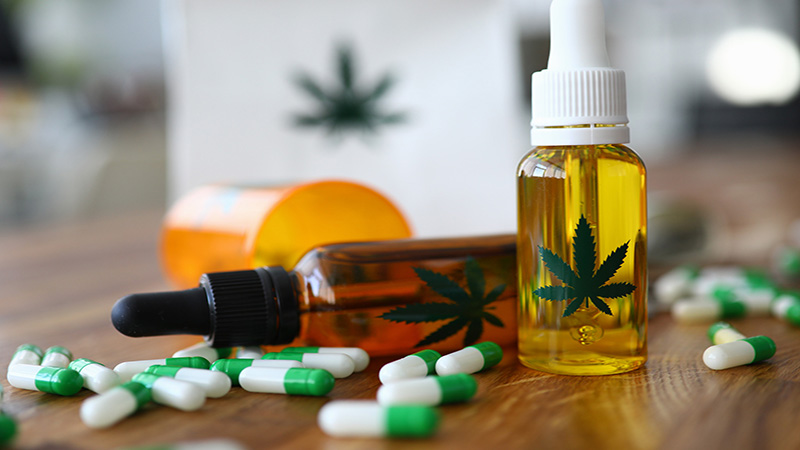
CBD is generally safe, but should you take it with other medications?
It’s best to see your doctor if you’re not sure what to decide.
CBD is a potent inhibitor of the major enzyme system in the liver called Cytochrome P450 (CYP450). When these enzymes stop working as intended, your body may change the way it metabolizes the active substances from your medications.
Depending on the type of interaction, you may end up with too low or too high levels of the drug in your bloodstream — none of which is good for you.
Although there haven’t been any reports about dangerous or fatal CBD-drug interactions, it’s better to err on the side of caution and consult a qualified medical professional before buying CBD oil.
Is CBD Oil Safe? Yes, But You Need to Mind the Source
CBD has a remarkably good safety profile. Even high doses, such as 1,500 mg taken regularly, don’t lead to dangerous side effects.
If you take too much CBD, you may experience dryness in the mouth, changes in appetite, dizziness, fatigue, and (very rarely) diarrhea.
But in normal doses, these side effects are nearly nonexistent.
Nevertheless, you need to watch out for shady companies that lure unaware consumers with low prices and too-good-to-be-true promises. Such vendors usually fall short of quality and safety standards, putting your health in danger.
If you’re looking for high-quality CBD oils that are safe for you, at Royal CBD, we test our products three times before they are available for sale — from the seed to the bottle. This way, you know you’re getting a premium product that contains only the beneficial phytochemicals, with no heavy metals, pesticides, or toxic solvent residue.
Remember, CBD oil is safe — as long as you know where to search.
Sources:
- Kaur, R., Ambwani, S. R., & Singh, S. (2016). Endocannabinoid System: A Multi-Facet Therapeutic Target. Current clinical pharmacology, 11(2), 110–117. https://doi.org/10.2174/1574884711666160418105339 [1]
- Burns, J. (2018). WHO Report Finds No Public Health Risks Or Abuse Potential for CBD. Forbes.com. Retrieved from https://www.forbes.com/sites/janetwburns/2018/03/18/who-report-finds-no-public-health-risks-abuse-potential-for-cbd/?sh=30363a562347
- Iffland, K., & Grotenhermen, F. (2017). An Update on Safety and Side Effects of Cannabidiol: A Review of Clinical Data and Relevant Animal Studies. Cannabis and cannabinoid research, 2(1), 139–154. https://doi.org/10.1089/can.2016.0034
- Merrick, J., Lane, B., Sebree, T., Yaksh, T., O’Neill, C., & Banks, S. L. (2016). Identification of Psychoactive Degradants of Cannabidiol in Simulated Gastric and Physiological Fluid. Cannabis and cannabinoid research, 1(1), 102–112. https://doi.org/10.1089/can.2015.0004 [4]
- Nahler, G., Grotenhermen, F., Zuardi, A. W., & Crippa, J. (2017). A Conversion of Oral Cannabidiol to Delta9-Tetrahydrocannabinol Seems Not to Occur in Humans. Cannabis and cannabinoid research, 2(1), 81–86. https://doi.org/10.1089/can.2017.0009 [5]
- Ewing, L. E., Skinner, C. M., Quick, C. M., Kennon-McGill, S., McGill, M. R., Walker, L. A., ElSohly, M. A., Gurley, B. J., & Koturbash, I. (2019). Hepatotoxicity of a Cannabidiol-Rich Cannabis Extract in the Mouse Model. Molecules (Basel, Switzerland), 24(9), 1694. https://doi.org/10.3390/molecules24091694 [6]
- Brown, J. D., & Winterstein, A. G. (2019). Potential Adverse Drug Events and Drug-Drug Interactions with Medical and Consumer Cannabidiol (CBD) Use. Journal of clinical medicine, 8(7), 989. https://doi.org/10.3390/jcm8070989 [7]
